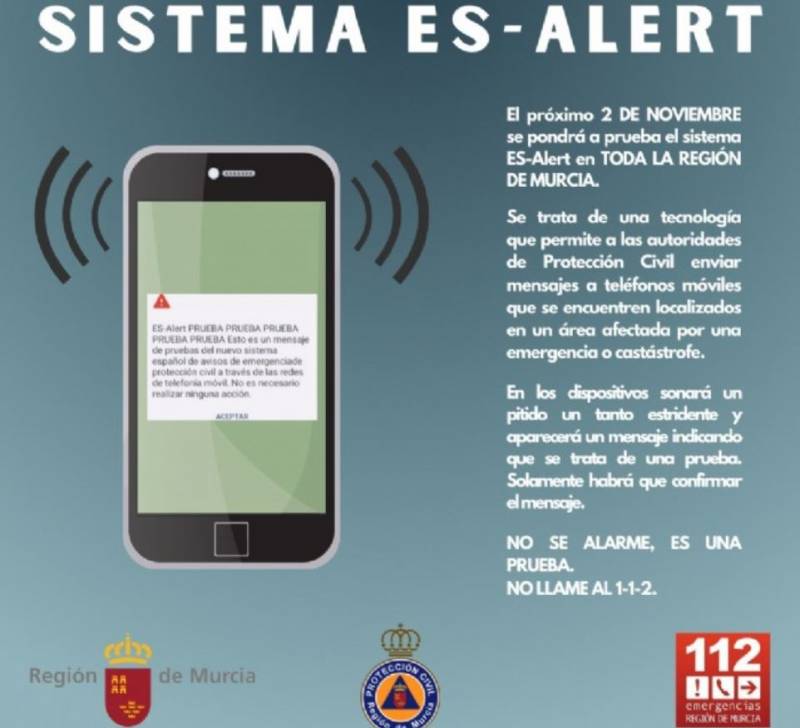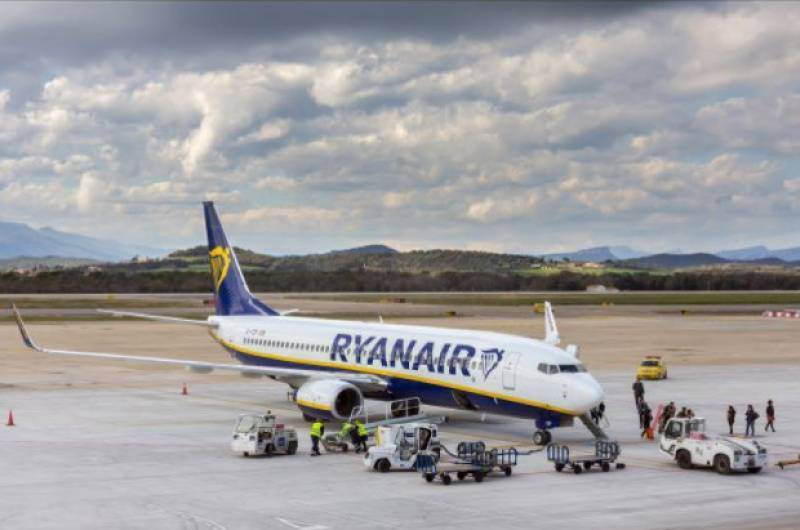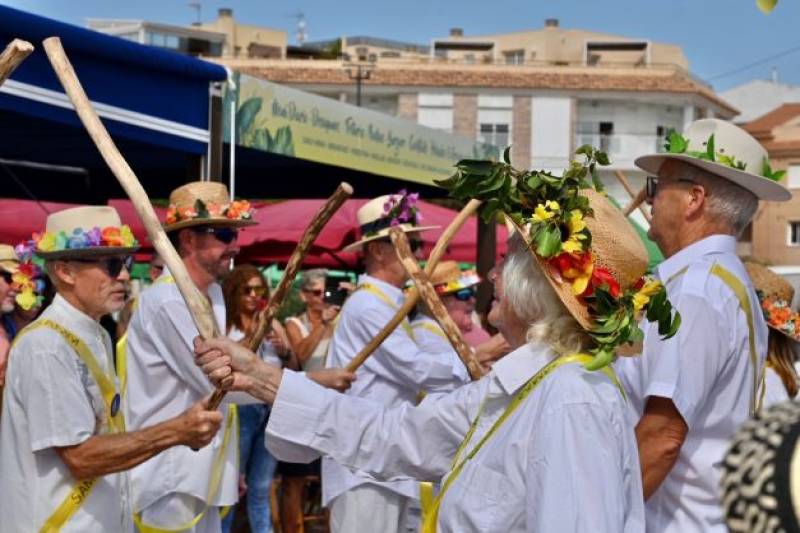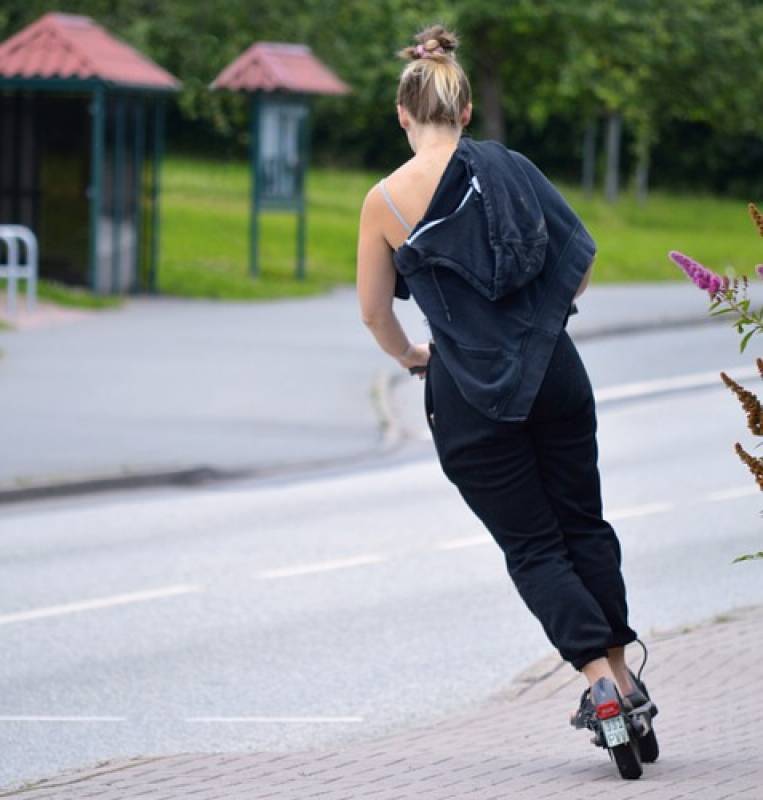article_detail
Spanish News Today Editors Roundup Weekly Bulletin Oct 29

CLICK HERE FOR THE FEATURE ARTICLES "Halloween, All Saints’ Day and the November 1st bank holiday in Spain" and "Could this be the hottest October in Spanish history?"
Happy Halloween! And All Saints’ Day and All Souls’ Day and all the rest of the special days coming up next week, including, of course, the national bank holiday on the first day of November, next Tuesday, to celebrate our march into winter territory.
Although, given the current 30ºC-plus temperatures, you’d be forgiven for thinking it’s still early September in Spain (unless you’re in Galicia, that is, where it’s pouring it down as usual). These unusual and increasingly more usual ‘extreme weather events’ are one reason why the Spanish government is sending everybody text messages to try out their new disaster warning alert system, of which more below.
Oh, and don’t forget that Daylight Savings Time officially ends this weekend, meaning clocks go back an hour this Sunday and we all get an extra hour in bed (but just try telling the kids or the dog that!).
Holidays and heat haze at the end of October
It seems like just yesterday that Spain had its October 12 celebration of Spain Day – a national holiday for everyone – and now we’ve got another nationwide bank holiday coming up next week. Between one thing and another, the last three months of the year are actually full of bank holidays, and when they fall on a Tuesday or a Thursday, so that they don’t actually make a long weekend, the Spanish will throw in an extra day to make a really long weekend, or ‘puente’.
 Which is the case next Tuesday November 1, which is All Saints’ Day or ‘El Día de Todos los Santos’, when people take the day off work and school to (traditionally, at least) go and visit the cemeteries where their dearly departed are buried to clean the graves and leave flowers and candles to honour their memory.
Which is the case next Tuesday November 1, which is All Saints’ Day or ‘El Día de Todos los Santos’, when people take the day off work and school to (traditionally, at least) go and visit the cemeteries where their dearly departed are buried to clean the graves and leave flowers and candles to honour their memory.In actual fact, this custom, like so many others, is becoming less and less popular as the years go on and it’s now mainly Spanish people of the older generation who still do this. What’s becoming more popular among younger generations is the US-style Halloween celebration of dressing up as vampires or ghoulies and going trick or treating. You can probably expect some trick or treaters showing up at your house across the whole four-day weekend as many schools (and some businesses, for that matter) will be taking the Monday off as well as the Tuesday. But that really depends on the specific area and businessowner. Lots of bars and restaurants should still be open as usual.
In addition to remembering the dead, this time of year is a celebration of a shift in seasons as we move into ‘darker winter’. And that’s why Daylight Savings Time ends on the last Sunday of October, which this year is Sunday October 30, and the clocks all go back an hour. At 3am this Sunday, your phone, computer and tablet should all magically jump themselves back an hour to 2am, so you get a nice lie in. But the microwave and your analogue watch will need to be done manually!
And yet… it doesn’t really feel so wintery, does it? We’re only days away from the end of the month and Halloween is just around the corner, but a proper autumn still seems to have no intention of rearing its head in Spain. The thermometers are still registering temperatures as much as 10ºC more than you’d typically expect for this time of year and the bank holiday weekend actually looks set to be another scorcher.
So warm is the forecast that the State Meteorological Agency (Aemet) is already gearing up to declare this the hottest October in Spanish history, but of course, we won’t know this for sure until the beginning of November. The unseasonably warm spell is likely to extend beyond this month too, according to Aemet: “Clearly warmer-than-normal conditions are likely to continue into the first half of November.”
Maybe a Hawaiian shirt and a surfboard, or a coconut bra and grass skirt are an appropriate Halloween costume this year?
Tsunami coming? Just text me…
 Noticed any strange noises or vibrations coming from your Spanish phone this week? You may well have, since the Civil Protection has begun trialling its ES-Alert system, which aims to warn people via text message of an impending natural disaster such as a fire or a flood, and advise them on how to stay safe.
Noticed any strange noises or vibrations coming from your Spanish phone this week? You may well have, since the Civil Protection has begun trialling its ES-Alert system, which aims to warn people via text message of an impending natural disaster such as a fire or a flood, and advise them on how to stay safe.The idea was first floated after the volcanic eruption on the island of La Palma and it was finally put into motion this October 24. Most people with a Spanish number can expect to receive a test text message that will make their phone beep loudly and vibrate until the message is viewed, even if your phone is on ‘silent’ or ‘vibrate’ mode.
There’s no need to panic though. No catastrophe is actually taking place.
Authorities have felt the need to assure people that this system, which is already widespread in Japan because of the frequent risk of earthquakes, is a totally normal response to weather events that are becoming more extreme with each passing year, and that it categorically has nothing to do with Putin’s threat of nuclear warfare.
Smartphone owners need do nothing more than open the message, click the button to accept that you have read it, then ignore it. If you don’t confirm, the message will stay up there on your phone for about 5 minutes.
The testing schedule aims to hit every autonomous community in Spain between now and November 16. In Murcia, for example, people will receive this message between 10am and 11am on Wednesday November 2. But in parts of Spain that have already trialled the system not everyone who was supposed to get a text message actually received one.
This is partly because phones which have an Android operating system already have the ability to receive such messages activated as the factory setting, but iPhones which use the iOS operating system have this option deactivated by default. To receive the message on iPhone, you’ll have to activate the alert system under the section ‘Wireless emergency alerts’ in your phone.
If you still don’t receive the message after this, don’t worry. This is simply a test and the government’s way of working out the kinks in the system to make sure the alert system works.
Flying low
Even though the summer tourist season is officially over, there seems to be no end to the travel disruptions we’ve been experiencing all year. In fact, new trouble appeared to be brewing after Ryanair’s ground handling staff voted to strike between October and January next year, until they were called off at the last moment.
 The work stoppages, which were due to be a mixture of 24-hour and partial strikes, were planned to affect 22 Spanish airports in all, including Malaga, Corvera in Murcia, Alicante-Elche and Seville airport. The union representing the baggage handlers, USO, is the same one which has launched legal action against Ryanair for its supposedly unfair negotiation tactics during the cabin crew strikes in Spain this summer.
The work stoppages, which were due to be a mixture of 24-hour and partial strikes, were planned to affect 22 Spanish airports in all, including Malaga, Corvera in Murcia, Alicante-Elche and Seville airport. The union representing the baggage handlers, USO, is the same one which has launched legal action against Ryanair for its supposedly unfair negotiation tactics during the cabin crew strikes in Spain this summer.The strikes were supposed to start on Friday October 28, but at the last minute were begrudgingly cancelled – or at least postponed – due to a dictum from the government’s Ministry of Transport and Urban Agenda that ground staff must continue to offer minimum services which “made it impossible for workers to carry out the strike,” according to USO in a statement, which described the Resolution of Minimum Services as “abusive and clearly detrimental to the exercise of the right to strike”.
While a pin has been put in the strikes for now, the union plans to challenge these minimum services over the next few days “for violation of fundamental rights” and the “absolutely regrettable action of the Ministry of Transport, which seems to be more interested in protecting the interests of companies that violate the rights of workers than in respecting the fundamental right to strike of workers”.
Ryanair isn’t the only airline causing chaos for travellers this winter, as cabin crew with the Spanish airline Vueling have also announced industrial action between November and January. The staff of both carriers are demanding more pay and better working conditions.
Our furry friends are also getting some air time this week as animal activists in Spain have officially asked the government to outline the rules governing how pets should be carried in the hold of planes.
 While many Spanish airlines allow passengers to bring small dogs, cats and even some turtles and birds into the cabin, larger animals must be stowed in carriers under the plane. The constantly fluctuating temperature and changes to air pressure, not to mention the loud noises, place animals under undue stress, according to the Parliamentary Association for the Defence of Animal Rights (APDDA).
While many Spanish airlines allow passengers to bring small dogs, cats and even some turtles and birds into the cabin, larger animals must be stowed in carriers under the plane. The constantly fluctuating temperature and changes to air pressure, not to mention the loud noises, place animals under undue stress, according to the Parliamentary Association for the Defence of Animal Rights (APDDA).“Although in Spain animals are already considered sentient beings, when travelling by plane, for example, they are treated as simple baggage,” APDDA’s Carles Mulet said. “Dogs, unless they are guide dogs, are put in cages, which is stressful for the animal.”
The government has yet to respond, but the fact that the question has been raised will likely come as a great relief to many pet owners.
Murcia
Travellers on a Ryanair flight from the UK to Murcia this week were more than miffed after their flight was delayed and was only ready to land at Corvera airport after midnight. However, it didn’t actually land there because the airport – also known as Murcia International Airport – closes at 10.30pm. There was no one around, not even in the control tower waiting for the delayed Ryanair flight to come in, and it was like a ghost airport.
So, the pilot was forced to redirect up to Alicante airport instead, and all the passengers were piled on a coach back down to Murcia, where many travellers had scheduled to pick up rental cars. Now, around 50 of the inconvenienced passengers are planning to file a joint lawsuit against Ryanair. It remains to be seen whether Ryanair can finally be held responsible for the incident and if they will have to pay compensation to the fed-up flyers.
 One of the reasons many people are attracted to Murcia is, of course, its wealth of amazing golf courses. And to boost this even further and give the courses the full attention they deserve, Murcia’s Ministry of Tourism has launched its ‘Golf destination all year round’ promotion, which aims to market the Costa Cálida at various national and international fairs as the perfect sporting destination, whatever the season.
One of the reasons many people are attracted to Murcia is, of course, its wealth of amazing golf courses. And to boost this even further and give the courses the full attention they deserve, Murcia’s Ministry of Tourism has launched its ‘Golf destination all year round’ promotion, which aims to market the Costa Cálida at various national and international fairs as the perfect sporting destination, whatever the season.In 2019 alone, some 165,000 golfers flocked to Murcia, generating around two million overnight stays in local hotels, and between them these sports tourists spent 265 million euros, 81% of the total holidaymaker income. Of course, there was a dip in these figures over the last 3 years due to Covid restrictions, but now golf holidays and golfing in general are back in a big way in Murcia, making it one of the biggest selling points of this corner of Spain.
 Another attraction that took place recently in the Region – for the first time in three years – was the local fiesta in Los Alcázares known as the Día del Caldero, at which the Sailing Association Mar Menor (SAMM) was present and performed a valiant display of typical English Morris Dancing, to the bemusement and delight of the Spanish locals.
Another attraction that took place recently in the Region – for the first time in three years – was the local fiesta in Los Alcázares known as the Día del Caldero, at which the Sailing Association Mar Menor (SAMM) was present and performed a valiant display of typical English Morris Dancing, to the bemusement and delight of the Spanish locals.In all, it was a roaring success, attracting many people who previously never knew about that quaint idiosyncrasy of Englishness that is Morris Dancing to come and ask more and learn about it. Plenty of Spaniards at the festival stopped to take photos with the dancers in their traditional outfits, whilst enjoying the good food, drink and company that’s a part of any good Spanish fiesta.
If you’re looking for something a bit scarier to do for this Halloween weekend, though, why not check out these 10 haunted places in Murcia which have ghost stories attached to them and have a distinctly spooky, creepy atmosphere, from the Orphanage of El Valle Perdido to Monte Arabí in Yecla.
See more events, things to do and places to go in Murcia this autumn in our EVENTS DIARY:
Spain
The summery weather has naturally extended the tourist season, and the beaches and mountain retreats are still thronged with happy holidaymakers. Sadly though, an idyllic hike in Mallorca ended in tragedy for one 75-year-old Irish visitor who plunged to her death this week from a 20-metre-high cliff.
The holidaymaker was on a guided group excursion along the popular Puig Roig circuit when she lost her balance at Pas d’en Segarra and fell, hitting her head and dying “virtually instantaneously”, according to witness reports.
Declared a UNESCO World Heritage site in 2011, the route the victim is understood to have been taking is part of a 50-mile hiking trail through the Serra de Tramuntana mountain range. The accident occurred in the municipality of Escorca.
A frightening number of accidents also happen on Spanish roads (and pavements and pedestrian footpaths) involving electric scooters, which are rarely out of the headlines. Lately, many people would  like to see these personal mobility vehicles (vehículo de movilidad personal or VMPs) banned from Spanish roads completely. Authorities have been threatening to introduce mandatory insurance for electric scooters for some time now, and this looks to be moving closer according to Pere Navarro of the General Directorate of Traffic (DGT), who recently said that “compulsory insurance for electric scooters will soon be required”.
like to see these personal mobility vehicles (vehículo de movilidad personal or VMPs) banned from Spanish roads completely. Authorities have been threatening to introduce mandatory insurance for electric scooters for some time now, and this looks to be moving closer according to Pere Navarro of the General Directorate of Traffic (DGT), who recently said that “compulsory insurance for electric scooters will soon be required”.
 like to see these personal mobility vehicles (vehículo de movilidad personal or VMPs) banned from Spanish roads completely. Authorities have been threatening to introduce mandatory insurance for electric scooters for some time now, and this looks to be moving closer according to Pere Navarro of the General Directorate of Traffic (DGT), who recently said that “compulsory insurance for electric scooters will soon be required”.
like to see these personal mobility vehicles (vehículo de movilidad personal or VMPs) banned from Spanish roads completely. Authorities have been threatening to introduce mandatory insurance for electric scooters for some time now, and this looks to be moving closer according to Pere Navarro of the General Directorate of Traffic (DGT), who recently said that “compulsory insurance for electric scooters will soon be required”.On the back of this, international insurance mentor and founder of the MAIO Method, Rafael Bonilla, is 100% positive that mandatory insurance is just around the corner, not only for scooters, but for all VMPs. According to Spanish law, a VMP is classified as a vehicle with one or more wheels equipped with a single seat and propelled exclusively by electric motors that can provide the vehicle with a maximum speed between 6 and 25km/h.
What many people aren’t aware of, however, is that electric scooter insurance policies actually already exist in Spain, and range between just 18 and 100 euros per year and offer a wide range of coverage, from simple civil liability to full damages. In addition, there are several home and motor policies on the market that also include scooters.
In any case, given the continuing popularity of this mode of transport in Spain, and the dangers associated with electric scooter use, it’s probably safe to assume that insurance will become mandatory in the very near future.
Alicante

This week, Valencian supermarket chain, Mercadona, which is one of the most popular shops in all of Spain, announced its own changes in line with the seasonal shift, with shorter opening times and a full-day closure of all stores in Alicante province on All Saints’ Day.
As is the case every year, the store’s schedule changes to meet consumer demands, and during the summer months, supermarkets opened their doors at 9am and shut at 10pm. This closing time has been brought forward by half an hour and shutters will be brought down at 9.30pm throughout the winter. As a rule, Mercadona, which has more than 1,600 stores across Spain and 30 in Portugal, doesn’t open its doors on Sundays or public holidays to give staff a day off.
Ahead of the holiday, bars and cafés in Guardamar del Segura, in the Vega Baja area of the province, are this week vying for one of three culinary crowns. Eighteen establishments are taking part in the town’s 11th ‘Tapas with History’ trail focusing on the ‘Cuisine of the Phoenicians’ who settled in the area, in particular in the Cabezo Pequeño del Estaño, a small archaeological site located on the banks of the Segura River.
The public can sample tapas with a drink, dessert or cocktail and vote for their favourite with the chance to win prizes. In addition to the tapas route, interactive street theatre is staged in the town centre aimed at all ages until Sunday.
Whilst Guardamar establishments are offering tapas and a drink for just 3 euros, a blind man accidentally forked out 930 euros for a tipple in a bar in Petrer, Alicante, instead of 9.30… and the owner has reportedly refused to give the money back!
The blind man made the payment of almost 1,000 euros by mistake at the end of last month when, after he went to pay, the card didn’t work so he made a Bizum transfer through his phone. When he went to press the numbers, however, he missed the break between the euro and cents and transferred 930 euros instead of 9.30.
There’s been a war of words since and the police have been brought in; the owner claims he has never refused to give the money back, but the customer remains out of pocket. Both have been summoned to appear in court next month.
 From extortionately-priced beverages, albeit accidental, to bargain-basement properties, house-buyers could bag themselves a two-bedroom flat in Alicante province from as little as 3,500 euros.
From extortionately-priced beverages, albeit accidental, to bargain-basement properties, house-buyers could bag themselves a two-bedroom flat in Alicante province from as little as 3,500 euros.BBVA bank, through Haya Inmobiliaria, periodically publishes properties on its website and is currently marketing apartments at rock-bottom prices. In Alicante province alone, there are currently 46 properties at incredibly low prices located in: Alicante city, Elche, Santa Pola, Villajoyosa, Calpe, Cocentaina, Onil, Banyeres, Crevillente and Novelda. Definitely worth a look!
Andalucía
A massive boost for tourism and transport in Andalucía as Malaga airport announced it would have flight connections with a total of 119 destinations this autumn and winter season 2022/23. This means  that between October 30, 2022, and March 25, 2023, the Costa del Sol is putting on almost 15% more flights than it did during the same period in 2019/20.
that between October 30, 2022, and March 25, 2023, the Costa del Sol is putting on almost 15% more flights than it did during the same period in 2019/20.
 that between October 30, 2022, and March 25, 2023, the Costa del Sol is putting on almost 15% more flights than it did during the same period in 2019/20.
that between October 30, 2022, and March 25, 2023, the Costa del Sol is putting on almost 15% more flights than it did during the same period in 2019/20.Most of these links are to other European countries, such as the Netherlands, Italy, France, Denmark and Ireland, and of course there are several domestic flights that go to other cities in Spain. But the place with the most flight connections to Malaga this winter is the UK, with 39 routes between the Costa del Sol and British airports, making up a total of almost 1,600,000 seats on around 8,500 flights.
Another boon, too, for Cadiz, which, after 16 long years of false starts and broken promises, has finally inaugurated its TramBahía, the first train-tram in Spain to circulate on the newly built tracks between the towns of Chiclana de la Frontera and San Fernando in the province of Cádiz, stopping in Puerto Real and other municipalities on the way.
Over 2,000 people used the tram this Wednesday October 26, the first day that the long-awaited service was up and running, and it’s proved to be a huge success. Work on the TramBahía originally began in 2006 but was interrupted by budget problems and the lack of initial coordination with the Ministry of Transport and its public companies, ADIF, Renfe and the State Railway Safety Agency (AESF), which caused countless stoppages. Since 2019, though, work has gotten back underway and now gaditanos and visitors to the beautiful Bay of Cadiz alike can travel along the famous coastline in style.
One person who won’t be going far is 30-year-old Dean Garforth, a notorious criminal on the UK’s Most Wanted Fugitives list who was captured by Spanish police in Marbella this week. Wanted by the British National Crime Agency (NCA) for trafficking drugs and weapons, Garforth was living in a Marbella urbanisation among a large expat community and trying hard to keep under the radar.
He was only located when he left his home on a rare outing, riding an e-bike, when he was spotted. A police chase ensued, with Garforth ramming officers with his bike before finally being taken down. Now, on top of the drugs and arms trafficking charges from the UK, he will also be tried in the Spanish courts for resisting arrest and disobedience.
Also in Marbella, police nabbed a Spanish pickpocket who was caught red-handed trying to filch a high-end watch from a tourist. The man was thwarted after several quick-thinking passers-by blocked his path so he couldn’t get away. The witnesses were also the ones who phoned police, who promptly turned up and put the thief in cuffs. The watch was recovered and returned to its owner, but the investigation is still open as, because several accounts of similar robberies have been reported, it’s believed this could be part of a sophisticated criminal gang targeting luxury timepieces in the area. Hopefully, they’ll all end up doing time!

You may have missed…
- Spain, Croatia and Ireland voted best countries in the word to retire to.
A study has found Spain to be the second-best country for retiree expats. - Guardia Civil takes down British and French drugs ring in Alicante and Murcia.
Police in Murcia and Alicante have taken down an international drug ring involving British, French and Russian criminals smuggling large amounts of cannabis to Belgium and the Netherlands. - Day passes and eating out at the Ramada Resort by Wyndham Hotel in Puerto de Mazarrón.
Get day passes to enjoy the pool, bar, terrace and restaurant at Mazarrón’s foremost hotel for just 25 euros. - Body of elderly British hoarder found at her Torrevieja home on the Costa Blanca.
The body of an 82-year-old British woman with severe mobility issues and a 'hoarding' condition has been found at her Torrevieja home, having been lying dead for up to two weeks. - Rowdy stag party forced to pay 7,000 euros compensation for delaying Madrid-Malaga train.
A court in Madrid has ordered eleven members of a bachelor party to pay rail operator Renfe 7,676 euros for causing delays on the Madrid-Malaga AVE line with their antisocial behaviour.
And that’s it from us for another week. Thanks for reading, and we’ll be back next week.
See you next week!
Got a business in Spain? Advertise with us.
Murciatoday.com and its affiliated Spain Today Online sites can help bring your business to a wider audience – over 350,000 unique readers every month. We’ll provide you with custom-made banner ads, a personalised listing in our Business Directory and special feature articles about your particular business niche.
Don’t limit yourself to the yellow pages. Get online! After Covid, can you afford not to? Contact us today to find out how we can get wider exposure for your business.
Contact Spanish News Today: Editorial 966 260 896 /
Office 968 018 268















